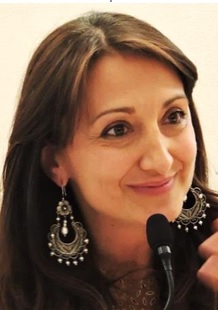Studying at the University of Verona
Here you can find information on the organisational aspects of the Programme, lecture timetables, learning activities and useful contact details for your time at the University, from enrolment to graduation.
Academic calendar
The academic calendar shows the deadlines and scheduled events that are relevant to students, teaching and technical-administrative staff of the University. Public holidays and University closures are also indicated. The academic year normally begins on 1 October each year and ends on 30 September of the following year.
Course calendar
The Academic Calendar sets out the degree programme lecture and exam timetables, as well as the relevant university closure dates..
| Period | From | To |
|---|---|---|
| Sem. 1A | Sep 23, 2019 | Oct 31, 2019 |
| Sem. 1B | Nov 11, 2019 | Jan 11, 2020 |
| Sem. 2A | Feb 17, 2020 | Mar 28, 2020 |
| Sem. 2B | Apr 6, 2020 | May 30, 2020 |
| Session | From | To |
|---|---|---|
| Sessione d'esame invernale | Jan 13, 2020 | Feb 15, 2020 |
| Sessione d'esame estiva | Jun 3, 2020 | Jul 25, 2020 |
| Sessione d'esame autunnale | Aug 24, 2020 | Sep 19, 2020 |
| Session | From | To |
|---|---|---|
| Sessione di laurea estiva | Jul 6, 2020 | Jul 11, 2020 |
| Sessione di laurea autunnale | Nov 2, 2020 | Nov 6, 2020 |
| Sessione di laurea invernale | Apr 7, 2021 | Apr 13, 2021 |
| Period | From | To |
|---|---|---|
| Festa di Ognissanti | Nov 1, 2019 | Nov 1, 2019 |
| Chiusura Ateneo | Nov 2, 2019 | Nov 2, 2019 |
| Festa dell'Immacolata | Dec 8, 2019 | Dec 8, 2019 |
| Vacanze di Natale | Dec 23, 2019 | Jan 6, 2020 |
| Vacanze di Pasqua | Apr 10, 2020 | Apr 14, 2020 |
| Festa della liberazione | Apr 25, 2020 | Apr 25, 2020 |
| Festa del lavoro | May 1, 2020 | May 1, 2020 |
| Sospensione delle lezioni | May 2, 2020 | May 2, 2020 |
| Festa del Santo Patrono | May 21, 2020 | May 21, 2020 |
| Sospensione delle lezioni | May 22, 2020 | May 23, 2020 |
| Festa della Repubblica | Jun 2, 2020 | Jun 2, 2020 |
| Vacanze estive | Aug 10, 2020 | Aug 15, 2020 |
Exam calendar
Exam dates and rounds are managed by the relevant Humanistic Studies Teaching and Student Services Unit.
To view all the exam sessions available, please use the Exam dashboard on ESSE3.
If you forgot your login details or have problems logging in, please contact the relevant IT HelpDesk, or check the login details recovery web page.
Should you have any doubts or questions, please check the Enrollment FAQs
Academic staff
 giorgia.decarli@univr.it
giorgia.decarli@univr.it
 licia.landi@univr.it
licia.landi@univr.it
 domenico.lipari@univr.it; domenico.lipari@uniroma1.it
domenico.lipari@univr.it; domenico.lipari@uniroma1.it
 angeloluigi.sangalli@univr.it
angeloluigi.sangalli@univr.it
Study Plan
The Study Plan includes all modules, teaching and learning activities that each student will need to undertake during their time at the University.
Please select your Study Plan based on your enrollment year.
1° Year
| Modules | Credits | TAF | SSD |
|---|
2° Year activated in the A.Y. 2020/2021
| Modules | Credits | TAF | SSD |
|---|
1 module to be chosen between the following1 module to be chosen between the following3° Year activated in the A.Y. 2021/2022
| Modules | Credits | TAF | SSD |
|---|
1 module to be chosen among the following1 module to be chosen among the following1 module to be between the following| Modules | Credits | TAF | SSD |
|---|
| Modules | Credits | TAF | SSD |
|---|
1 module to be chosen between the following1 module to be chosen between the following| Modules | Credits | TAF | SSD |
|---|
1 module to be chosen among the following1 module to be chosen among the following1 module to be between the following| Modules | Credits | TAF | SSD |
|---|
Legend | Type of training activity (TTA)
TAF (Type of Educational Activity) All courses and activities are classified into different types of educational activities, indicated by a letter.
Psychology of Personality and Individual Differences (2021/2022)
Teaching code
4S007359
Teacher
Coordinator
Credits
6
Language
Italian
Scientific Disciplinary Sector (SSD)
M-PSI/01 - GENERAL PSYCHOLOGY
Period
Sem. 1B dal Nov 15, 2021 al Jan 12, 2022.
Learning outcomes
1) Know and understand the psychological theories that explain attitudes and behaviors of individuals and groups. 2) Apply the theories on the functioning of individuals, groups and organizations to the analysis of phenomena of learning and personal and social change. The course aims to allow the student to know and understand the main theories that explain the personality and its evaluation/measurement methods. Allow the student to know and understand how to identify the peculiarities concerning the main individual differences in order to relate them to the behavior of individuals and groups. Give the student the opportunity to apply the theories about the functioning of the individual's personality and its contribution to the learning and change activities of groups and organizations.
Program
Introduction to the study of personality
- What is personality?
- What does personality psychology study?
- From naive theories to scientific theories of personality
- What factors determine personality?
- The fundamental questions in the study of personality
- A map for orientation: the "Four Quadrants" of personality
Investigation methods in the study of personality
- Introduction
- Sources of information in the personality study: LOTS data
- Research designs in personality psychology
- Evaluation criteria for personality measurements
The psychoanalytic perspective
- A bit of history
- Freud's psychoanalytic theory
- Applications and developments of psychoanalytic thinking
The perspective of the traits
- A bit of history
- A heterogeneous perspective
- The applications of the perspective of the traits
- Developments in the perspective of traits
The biological perspective
- A bit of history
- The relationship between mind and body and temperament
- Genes and personality
- Biological processes and personality
- The evolutionary approach to the study of personality
The environmental perspective
- The concept of environment in relation to personality
- Learning and personality processes: research on conditioning
- Cultural sources and personalities
- Geophysical variables and personalities
The cognitive-social perspective
- A bit of history
- The cognitive-social theory of Albert Bandura
- The applications of the cognitive-social perspective
- Developments in the cognitive-social perspective
The cognitive perspective
- A bit of history
- The theory of personal constructs
- The applications of perspective
The humanistic perspective
- A bit of history
- The humanistic theory of Carl Rogers
- The applications of the humanistic perspective
- Developments in the humanistic perspective
Overlaps and integrations between perspectives
- Analogies between perspectives
- Integrate perspectives
- To concludes
Bibliography
Examination Methods
NB:
As a result of the health emergency due to Covid-19, the usual examination modalities might be modified, in accordance with the University indications. Updates will be posted on the course moodle e-learning page.
The exam taken during an official call will consist of a 30 minutes multiple choice question (30) (3 answers alternatives, only one of which is correct.) For the final judgment expressed in thirtieths, a correct answer has value equal to 1 point, an incorrect answer has a value equal to 0 points, an answer not given has a value equal to 0 points).
Type D and Type F activities
Modules not yet included
Career prospects
Module/Programme news
News for students
There you will find information, resources and services useful during your time at the University (Student’s exam record, your study plan on ESSE3, Distance Learning courses, university email account, office forms, administrative procedures, etc.). You can log into MyUnivr with your GIA login details: only in this way will you be able to receive notification of all the notices from your teachers and your secretariat via email and soon also via the Univr app.
Gestione carriere
Linguistic training CLA
Student mentoring
Practical information for students
Documents
| Title | Info File |
|---|---|
|
|
pdf, it, 325 KB, 02/05/23 |
|
|
pdf, it, 212 KB, 02/05/23 |
|
|
pdf, it, 131 KB, 02/05/23 |
Graduation
Documents
| Title | Info File |
|---|---|
|
|
pdf, it, 99 KB, 13/10/23 |
|
|
pdf, it, 101 KB, 10/04/24 |
|
|
pdf, it, 296 KB, 28/07/22 |
|
|
pdf, it, 142 KB, 28/07/22 |
|
|
octet-stream, it, 24 KB, 28/07/22 |
List of theses and work experience proposals
Stage e Tirocini
Le attività che ci si aspetta il/la tirocinante curriculare in Scienze psicologiche per la formazione svolga presso gli enti che lo/la ospitano riguardano principalmente attività di affiancamento nei seguenti ambiti:
- Formazione, sviluppo, innovazione e gestione delle risorse umane;
- Orientamento scolastico e professionale;
- Ricerca, selezione e valutazione psicologica del personale.
Sono ritenuti ambiti adeguati le diverse agenzie per il lavoro, le agenzie di formazione, le agenzie di orientamento, le società di consulenza e tutti gli enti, le associazioni, le aziende, le imprese e, in generale, le organizzazioni che al loro interno operano attività di ricerca, selezione e valutazione psicologica del personale, attività di formazione, sviluppo, innovazione e gestione delle risorse umane e attività di orientamento scolastico e professionale. Anche enti di ricerca e Università dove si conducono studi e indagini su questi temi sono ambiti ritenuti adeguati.
Lo/la studente/essa sarà seguito/a da un tutor accademico e da un tutor aziendale. Alle attività di tirocinio sono attribuiti 9 CFU (pari a 225 ore).
Il tutor aziendale deve essere un laureato in psicologia anche non iscritto all’albo.
Linee Guida per lo Svolgimento dei Tirocini Curriculari
- Tutte le informazioni in merito agli stage per futuri studenti sono disponibili alla pagina Stage e tirocini.
- Tutte le informazioni in merito agli stage per studenti iscritti sono pubblicate in MyUnivr - come fare per - stage e tirocini.
- Tutte le informazioni in merito agli stage per le aziende sono disponili alla pagina Stage e tirocini per azienze.

 3356852559
3356852559

























